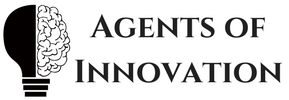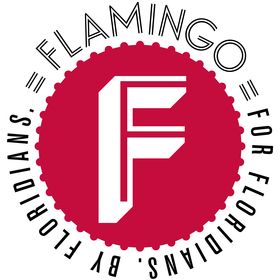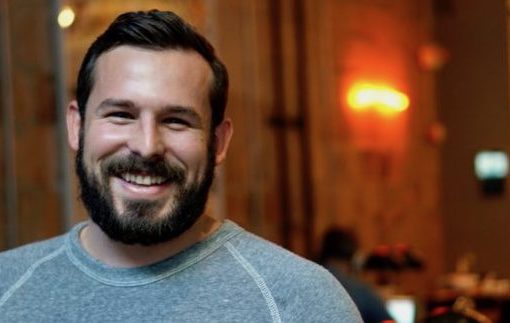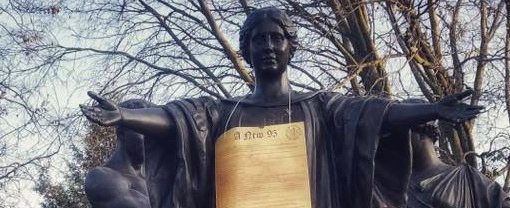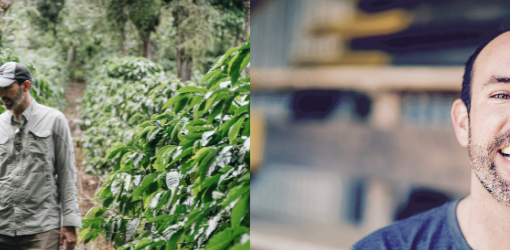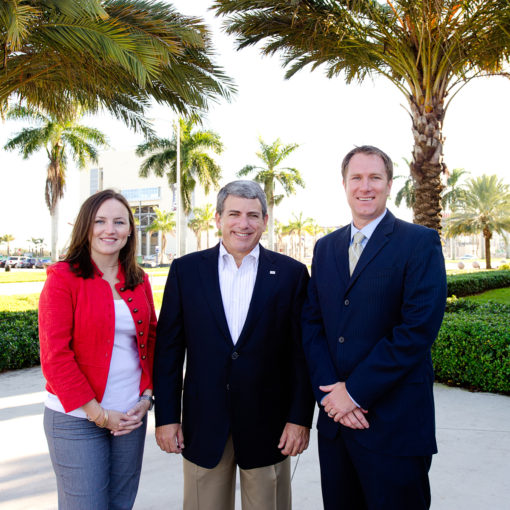Jamie Rich is the founder, publisher, and editor-in-chief of Flamingo Magazine, Florida’s only statewide lifestyle media brand covering people, travel, outdoor pursuits, food, conservation, culture and style across the state. She founded it in 2015 and this month, Flamingo Magazine released its 5th anniversary print edition, which can be found on newsstands from Barnes & Noble to Publix Super Markets. She was our featured guest on Episode 92 of the Agents of Innovation podcast.
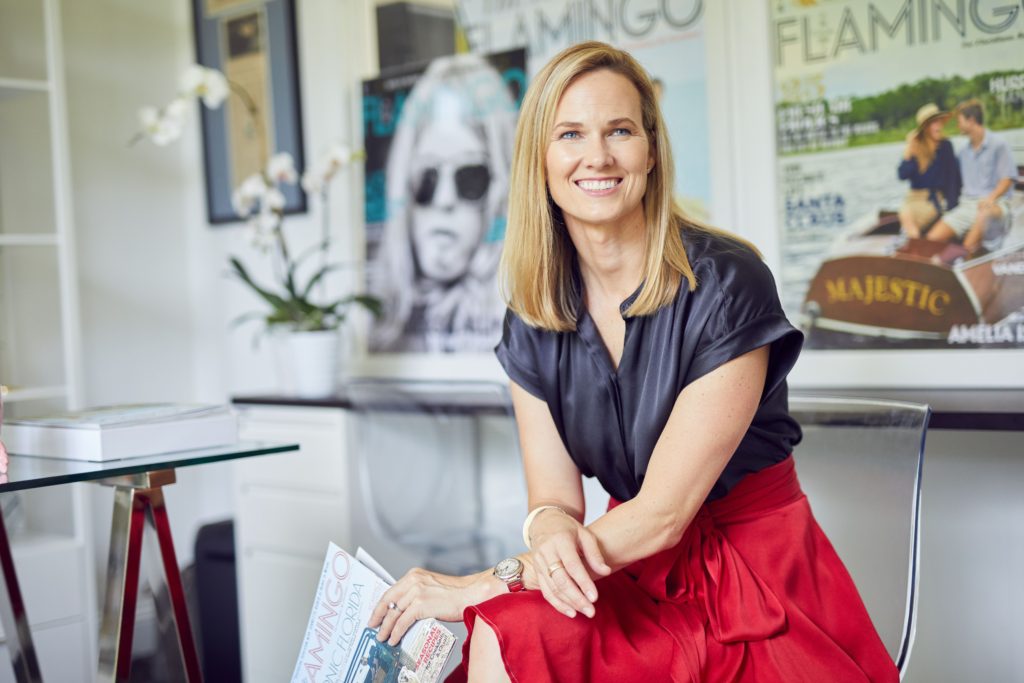
As an editor and journalist, Jamie has covered travel and culture around the world. Her work has appeared in national and international publications. She spent much of her professional life abroad and worked in newsrooms from The Moscow Times to The Times of London. She holds degrees from Florida State and Georgetown.
Like many Floridians, Jamie is a transplant. When she was 16 years old, her parents moved from Raleigh, North Carolina to Parkland, Florida. She went kicking and screaming at the time, she said. But today she reflects on how it forced her out of a place of familiarity.
“That move and forcing me to have to survive in a new place and such a diverse place probably changed my path forever,” she said. “I was forced out of my very comfortable zone in NC … where I knew everything and never was challenged – and to be forced out of that I do think that sort of set me on a path of continual learning and adventure.”
And what an adventure it has been. She went to college at Florida State University. During that time, she interned at the Florida State University public affairs office and wrote stories on behalf of the university that were published in the Tallahassee Democrat. After she graduated, she moved to Atlanta only to discover that there were not as many jobs in journalism and most were very low pay. So she took her communications skills to the Southern Company, a large energy company, and did public relations for the corporate communications group there.
During her first post-college professional experience at Mirant, a subsidiary of the Southern Company, perhaps the most important thing was that she found an important mentor, her boss, Sandra Mackey. “Most people don’t land such a great boss in their first job,” recalled Rich. She also had the unique experience of helping to get representatives from Mirant to ring the bell on the floor of the New York Stock Exchange on the first day their stock went public. On the flip side, Mirant was also a competitor of Enron, which became embroiled in financial scandal, and she learned the skills of managing her company through a communications crisis. On top of all this, she also met her husband at work. His career opportunities, including working in emerging markets, led the couple on an international adventure.
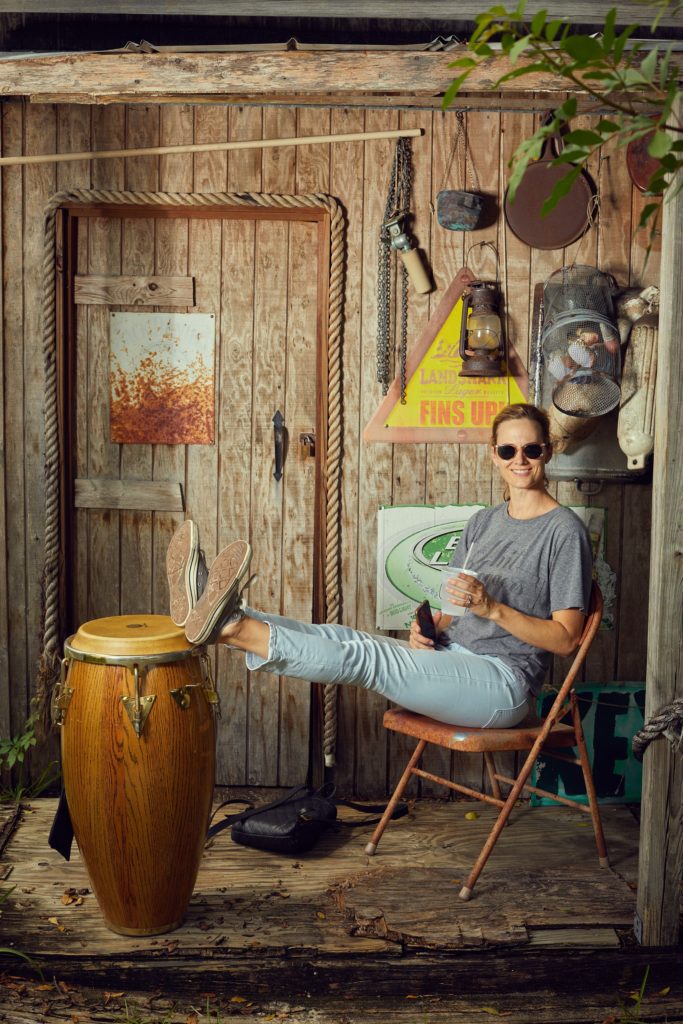
In 2002, Jamie and her husband moved to Moscow. She said this move, “Gave me the chance to reflect on what I wanted to do next … that was really a chance for me to take a look at what I wanted to do professionally so that’s when I made the move to journalism.”
She obtained a job on the copy desk for The Moscow Times, the only English-only daily newspaper in Moscow, which was read by almost all English-speaking ex-pats. She also wrote for the paper during “an interesting time to be in Moscow.” On top of this job opportunity, she said the experience of living and working abroad was the “beginning of a lifelong journey of learning about other cultures, appreciating other cultures.”
After two years in Moscow, Jamie and her husband moved back to the Washington, DC area. She was pregnant at the time and decided to become a freelance writer and reporter. She was in a very competitive market and soon realized, “I needed more skills in my toolbox to be successful and I realized that pretty quickly.” So, she enrolled in a Master’s degree program at Georgetown University.
She said she thought at the time: “I really want to increase my skills, my education, I want to better myself, it’s just such a different approach and mindset.” What she got at Georgetown was the rigor and constructive feedback she needed. She also had unique experiences, including having classes on-site at the Washington Post, including one taught by legendary journalist Bob Woodward. Later, when she would start Flamingo Magazine, she would lean on some of her Georgetown professors and other connections she made during that time to help her build out a larger media business that went beyond writing and editing.
While she was at Georgetown, her husband’s work led him to begin traveling to Cameroon, an underdeveloped country in central Africa. After Jamie earned her M.A. degree and her daughter was old enough to be vaccinated to meet the requirements needed to travel to Cameroon, the family moved there. During their time in Cameroon, the toddler contracted malaria twice, giving the family a whole new perspective on how challenging it is to live in Central Africa. Jamie also reported on some unique stories, including the mutilation of breasts that many young women faced and how it was as socially acceptable part of the culture there – with the goal of protecting the women. However, it wasn’t based on science.
From there, Jamie and her family moved to London for three years. During that time she worked at the Times of London, where she worked the digital desk, at night, while she pregnant with her second child. She and her husband worked such grueling hours, she would often find herself exchanging the parenting duties with her husband by meeting him on the platform of the Tube to drop off her first daughter.
“I loved it. There couldn’t have been a more energizing place to work and city to work in at that time,” said Rich. She said that living overseas “has been so critical to who I’ve become.”
“Travel is so important for that reason – just giving people perspective and helping them feel connections to other cultures is so important to appreciating diversity and appreciating people’s differences,” she said. “Traveling helps you gain an open mind.” She just loved “feeling that buzz of being in a place totally out of your element and learning.”
“I feel like I get a lot of that buzz and being out of my element through” running a magazine now, she said.
Jamie moved back to Florida around 2012, when her husband was offered a great position in Jacksonville. And with two children now, Jamie still had a passion for journalism. As she began talking to more locals, especially transplants to Florida, she began hearing a consistent theme from people that different parts of Florida were like “Georgia” or “Alabama” or “Latin America,” etc. She thought: “No, this is all Florida.”
“We are all Floridians and we really need to find a way to unify under that instead of separating ourselves so much and identifying with another place and not identifying with our state,” she said.
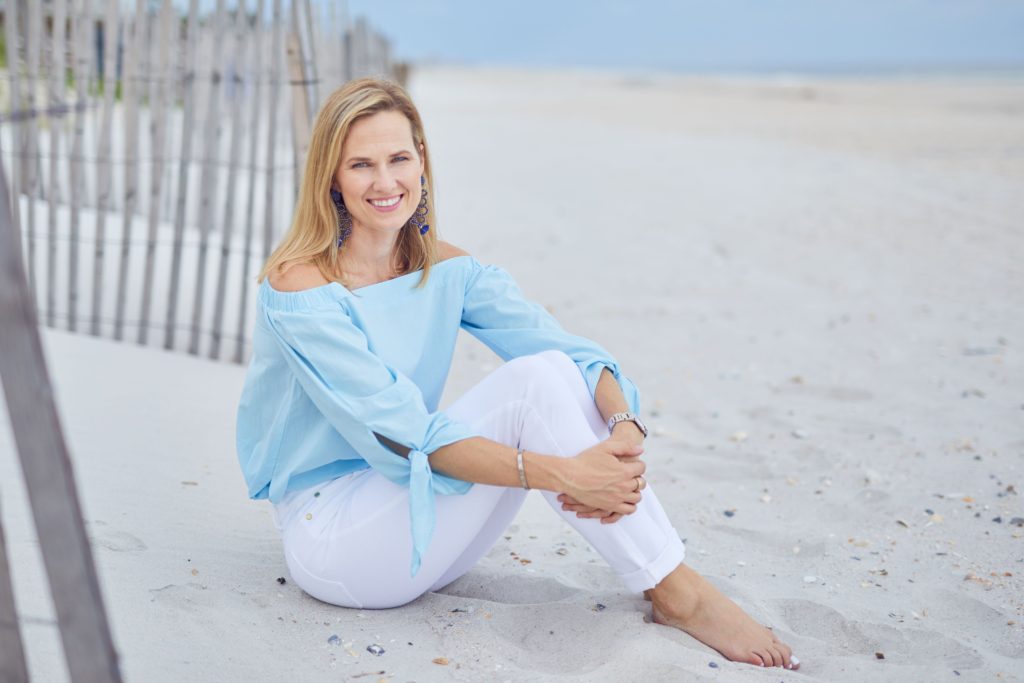
She saw an opportunity for a statewide magazine that would bring this all together and help Floridians connect with the diverse people, places, and culture across what has become the third most populous state in the union.
“So that was another real driver in just finding the mission of the magazine which is to unify the state and to be the destination for its greatest stories and then to inspire our readers to go out and do new things and experience new parts of the state that they discovered through our pages.”
She then spent a full year developing the plan. She put on her “reporter hat” and began investigating the ways to start her own business enterprise. While she was trained as a writer and reporter, starting a business required finding revenue sources such as advertisers and subscribers; in this industry, it required learning about printing, publishing, and even which types of paper to use.
She was fortunate to have her husband as a “sounding board” and to review her business plan. Jamie said it “is so important for people starting a business to have someone you trust who can really poke holes in your plan and push you to really know why you want to do something and if you really do want to do something if you should do something.” Her husband was that “the contrarian voice” that made her look closer at her plan.
She also involved others in the process. She had conversations in coffee shops with writers and other business leaders and engaged in brainstorming sessions. There was a lot of enthusiasm from many people at that point. “I love the creative process,” she said. “That part is so fun.”
However, keeping people involved through the next, actionable steps of actually starting and growing the business was more challenging.
“Then when you really want someone to help you do it and put the work in, and roll up the sleeves and stay up all night, and do what it takes to produce, anything really, a new business, a first edition of a magazine, that’s a special group of people.”
On Episode 92 of the Agents of Innovation podcast, Jamie demonstrated what other entrepreneurs can learn from her story. She understood her skill set and its limitations, collaborated with others, sought and obtained feedback, put together a team of people of specialized skill sets (especially skills she did not have), built on contacts she had at Georgetown and locally in Jacksonville and across the state, and researched the writers she wanted to recruit to be a part of the magazine.
“You have to do things that you never thought you would do or that you never wanted to do; they are critical to your business that you start,” said Rich. “At the core of it is your passion, but there are all these other things that have to keep it running.”
Flamingo Magazine published its first issue in 2016 and started gaining more and more readers, subscribers, and advertisers. But then, in March 2020, the world came to a screeching halt with COVID19.
Many of their advertisers are in the travel and tourism industry. As their businesses suffered, their advertising budgets dried up. In addition, no one was buying magazines at news stands in the airport, as just one example. While their print edition in March 2020 had just published, Jamie mad a decision pretty early to stop printing the magazine and go completely digital for the rest of 2020 and perhaps the foreseeable future.
Many of her subscribers were not happy, because magazine readers tend to want a print magazine – especially if they had already paid for a subscription. However, Flamingo Magazine, like many other businesses, was facing the dire consequences of COVID19. Jamie made the tough decisions to cut her public relations and social media positions. She cut hours for almost everyone else and only a few core essential people were left on the team.
“It was just survival mode at that point,” she said. “I want the brand to survive. We built something great. If we go to print, we are going to spend away all the money in the bank account. There’s no revenue coming in to refill it. It’s just what it was. I think that decision definitely helped us to stay around and we’re able to come back now and release our print issue for the [fifth] anniversary. We sustained. We brought back that revenue. Advertisers are coming back now.”

In the meantime, they learned a lot about digital media, which was previously on the back burner, since they were always so focused on bringing the next issue to print. COVID pushed all that to the forefront and made them rethink how they put out their content and how and when they release it.
“We now actually put out more stories than ever because of not having a (print) magazine as the driver of what we put on our website.” In addition, they started a weekly e-newsletter and now have more subscribers and readers than ever before. With Florida being a leader in the nation for returning to a sense of normalcy in a post-COVID world, Flamingo Magazine weathered the storm and might just come out the other side more successful in print and online. And with more people moving to Florida than ever before, the potential audience is certainly growing.
You can listen to the full interview with Jamie Rich on Episode 92 of the Agents of Innovation podcast on Apple podcasts, Amazon podcasts, Spotify, Stitcher, and SoundCloud. You can also follow the podcast on Facebook, Instagram, or Twitter.
Please consider supporting the Agents of Innovation community by becoming a member of our Patreon page today, starting at just $5 a month!
